Filter by
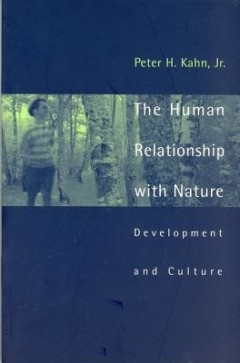
The human relationship with nature : development and culture
Urgent environmental problems call for vigorous research and theory on how humans develop a relationship with nature. In a series of original research projects, Peter Kahn answers this call. For the past eight years, Kahn has studied children, young adults, and parents in diverse geographical locations, ranging from an economically impoverished black community in Houston to a remote village in …
- Edition
- -
- ISBN/ISSN
- 9780585076522
- Collation
- 1 online resource (xiv, 281 pages)
- Series Title
- -
- Call Number
- 306 KAH h

Identity and the natural environment :the psychological significance of nature
The often impassioned nature of environmental conflicts can be attributed to the fact that they are bound up with our sense of personal and social identity. Environmental identity--how we orient ourselves to the natural world--leads us to personalize abstract global issues and take action (or not) according to our sense of who we are. We may know about the greenhouse effect--but can we give up …
- Edition
- -
- ISBN/ISSN
- 9780262270465
- Collation
- 1 online resource (vi, 353 pages) : illustrations
- Series Title
- -
- Call Number
- -
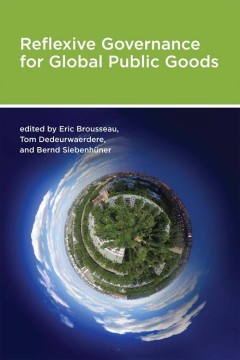
Reflexive governance for global public goods
Governance challenges and solutions for the provision of global public goods in such areas as the environment, food security, and development.OCLC-licensed vendor bibliographic record.
- Edition
- -
- ISBN/ISSN
- 9780262301213
- Collation
- 1 online resource (xiv, 366 pages) :illustrations.
- Series Title
- -
- Call Number
- -
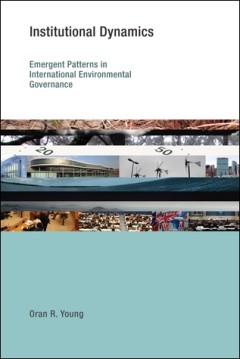
Institutional dynamics :emergent patterns in international environmental gove…
An analysis of patterns of change in international environmental regimes, with five case studies illustrating the patterns identified. International environmental regimes—institutional arrangements that govern human-environmental interactions—are dynamic, changing continuously over time. Some regimes go from strength to strength, becoming more effective over the years, while others seem …
- Edition
- -
- ISBN/ISSN
- 9780262289825
- Collation
- 1 online resource (xiv, 225 pages) :illustrations.
- Series Title
- -
- Call Number
- -

Living through the end of nature :the future of American environmentalism
"Environmentalists have always worked to protect the wildness of nature but now must find a new direction. We have so tamed, colonized, and contaminated the natural world that safeguarding it from humans is no longer an option. Humanity's imprint is now every where and all efforts to "preserve" nature require extensive human intervention. At the same time, we are repeatedly told that there is n…
- Edition
- -
- ISBN/ISSN
- 9780262266000
- Collation
- 1 online resource (xii, 252 pages) :illustrations
- Series Title
- -
- Call Number
- -
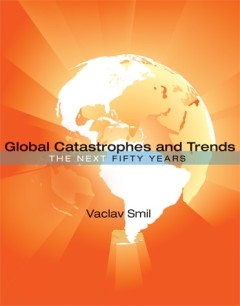
Global catastrophes and trends The Next Fifty Years
From the Publisher: Fundamental change occurs most often in one of two ways: as a "fatal discontinuity," a sudden catastrophic event that is potentially world changing, or as a persistent, gradual trend. Global catastrophes include volcanic eruptions, viral pandemics, wars, and large-scale terrorist attacks; trends are demographic, environmental, economic, and political shifts that unfold over …
- Edition
- -
- ISBN/ISSN
- -
- Collation
- 1 online resource (xi, 307 pages) : illustrations, maps
- Series Title
- -
- Call Number
- -
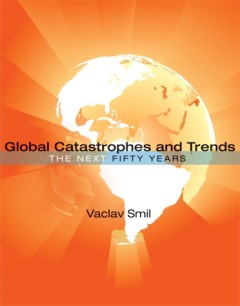
Global catastrophes and trends The Next Fifty Years
From the Publisher: Fundamental change occurs most often in one of two ways: as a "fatal discontinuity," a sudden catastrophic event that is potentially world changing, or as a persistent, gradual trend. Global catastrophes include volcanic eruptions, viral pandemics, wars, and large-scale terrorist attacks; trends are demographic, environmental, economic, and political shifts that unfold over …
- Edition
- -
- ISBN/ISSN
- -
- Collation
- 1 online resource (xi, 307 pages) : illustrations, maps
- Series Title
- -
- Call Number
- -
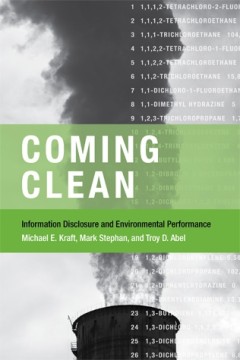
Coming clean Information Disclosure and Environmental Performance
"Coming Clean is the first book to investigate the process of information disclosure as a policy strategy for environmental protection. This process, which requires that firms disclose information about their environmental performance, is part of an approach to environmental protection that eschews the conventional command-and-control regulatory apparatus, which sometimes leads government and i…
- Edition
- -
- ISBN/ISSN
- -
- Collation
- -
- Series Title
- -
- Call Number
- -
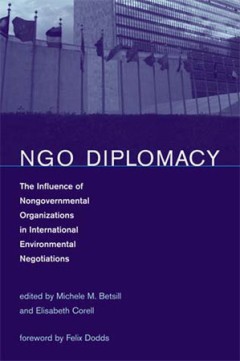
NGO diplomacy The Influence of Nongovernmental Organizations in International…
Provides an analytical framework for assessing the impact of NGOs on intergovernmental negotiations on the environment and identifying the factors that determine the degree of NGO influence, with case studies that apply the framework to negotiations on cl.
- Edition
- -
- ISBN/ISSN
- -
- Collation
- 1 online resource (xvii, 244 pages)
- Series Title
- -
- Call Number
- -
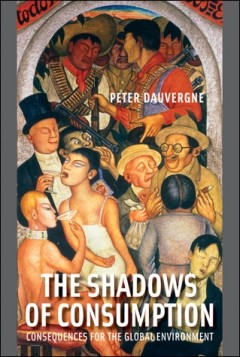
The shadows of consumption : Consequences for the Global Environment
An environmentalist maps the hidden costs of overconsumption in a globalized world by tracing the environmental consequences of five commodities.The Shadows of Consumption gives a hard-hitting diagnosis: many of the earth's ecosystems and billions of its people are at risk from the consequences of rising consumption. Products ranging from cars to hamburgers offer conveniences and pleasures; but…
- Edition
- -
- ISBN/ISSN
- -
- Collation
- 1 online resource (xvi, 315 pages)
- Series Title
- -
- Call Number
- -
 Computer Science, Information & General Works
Computer Science, Information & General Works  Philosophy & Psychology
Philosophy & Psychology  Religion
Religion  Social Sciences
Social Sciences  Language
Language  Pure Science
Pure Science  Applied Sciences
Applied Sciences  Art & Recreation
Art & Recreation  Literature
Literature  History & Geography
History & Geography